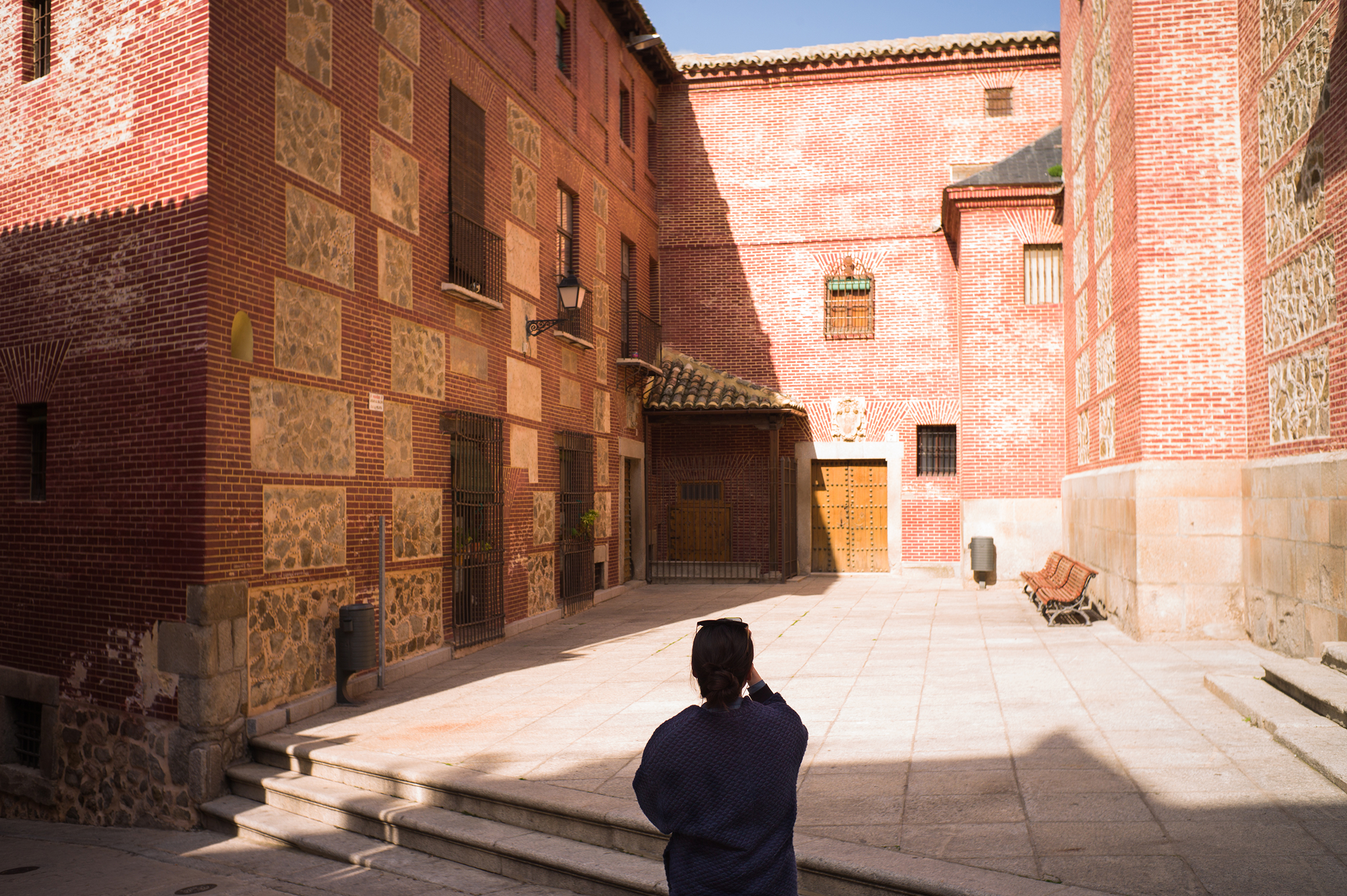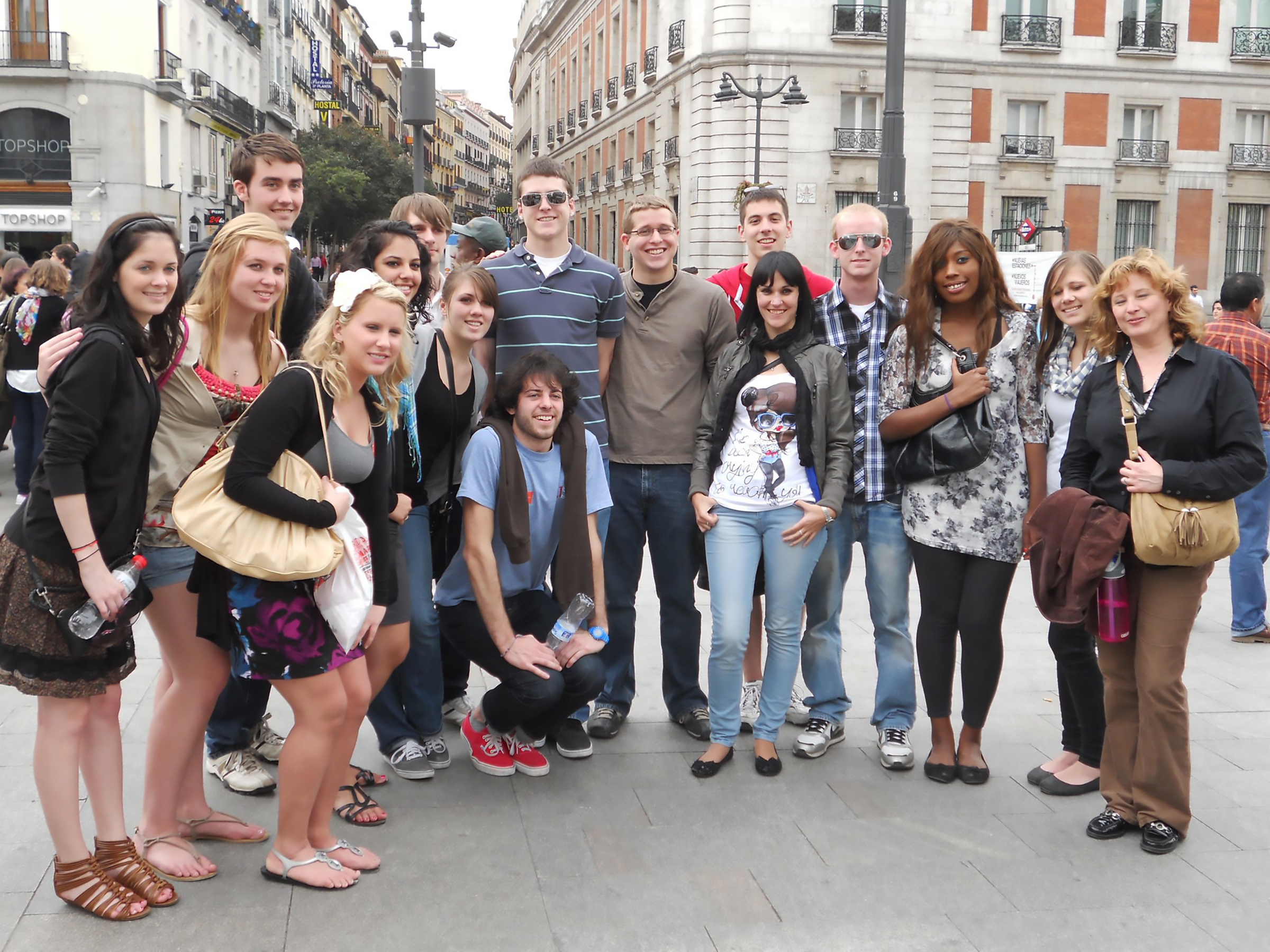The best way to learn a language
Learning a new language can sometimes be a frustrating, confusing ordeal. Travel editor Tanya Parker had her first immersion travel experience brimming with hard-learned lessons, returning home with a trick or two on how to make the most of new cultural adventures.
Studying and stumbling abroad

I’d been studying Spanish language for eight years when I signed up for a study abroad experience in Toledo, Spain in university (lead image). I didn’t know anything about Toledo apart from what Google told me, but I thought it’d be the perfect chance to hone my Spanish skills. I was (proudly) among the youngest in the group, and I had just gotten my first passport especially for this trip. I was ready.
We were assigned host families with whom we were to live throughout our three-month stay, devised as an opportunity for us to fully embed in the experience.
The minute I met my host family my Spanish “skills” appeared to fail me straight away. I simply could not understand my host mother. We weren’t taught about regional dialects or slang terms, or – rather importantly – that the Spanish I was taught through school was Mexican Spanish not European Spanish. “Carro” was now “coche”, and I was scrambling to catch up and keep up, feeling like I became the worst Spanish speaker over night. My host mum spoke to me in pantomime, I found myself relying on classmates who knew Spanish better than me and I quickly fell deep into a culture shock that had me missing English more than anything. I spent many of my first nights sobbing to myself, wondering if I’d made a huge mistake.
The turning point

The university classes I was taking abroad were also all taught in Spanish. It only took a few weeks for my brain to realise that I didn’t have a choice but to pick up the language ASAP. I was fully immersed in Spanish every waking moment, and the best way to enjoy the opportunity was to commit to it entirely. I found my writing and reading skills still acceptable, so I took that as a victory and focused on my communication skills. My Spanish verbal picked up after a few difficult classes, and after time, I even learned to understand my host mother.
My classmates and I took frequent excursions outside of Toledo to delve deeper into the surrounding cities in Spain, learning more about the history and local cultures. Our tour guide also strictly spoke Spanish, another opportunity to continue actively learning. The university arranged after-hours conversation meet-ups for Spanish locals looking to improve their English while also helping us improve our Spanish too. At every turn, we were presented more and more chances to get better and make the most out of our study abroad experience. I felt so confident at the end of my 3-month stay that I went to a Spanish salon and asked them to cut my gloriously long hair straight off. I was a new me, after all!
What I learned

Courtesy: Emilia Alonso Sameño
Immersion language experiences are arguably the best way to learn a foreign language because it leaves you with no choice but to pick it up quickly. But I think there’s more to it than just plopping yourself into a non-English speaking location and hoping for the best.
Tips and tricks to learn it quick
1) Be patient with yourself and stay open-minded. My first mistake was assuming I was already a Spanish whiz before proving myself in a real-life speaking situation. Unless you grew up speaking multiple languages, you’ll likely require time to adjust and get the hang of things. And most importantly, accept that you’ll make mistakes.
2) Carry pocket-size language tools with you – whether it’s a dictionary or a smartphone app – there’s no shame in it. Google Translate even has a feature where you can hold your camera up to an unfamiliar word for an instant translation.
3) Take every opportunity to practice the language. Speak to the local barista at the coffee shop, listen to local radio stations, download practice apps or join a tour group in the language you’re learning.
4) Set realistic goals. Plan to speak to three locals, try to read a news article in a new language per day, endeavour to navigate public transport on your own – all achievable things that will improve your communication while increasing the value of your trip.
5) Ask questions. If you don’t understand what someone has said to you, ask them to repeat it or simply say you don’t understand. You’ll find most people are happy to help you out.
6) Have fun! Whether you’ve opted to fully immerse yourself or you’re just looking to dip your toes in the water, remember to have a good time. You’ll have a fab experience anyway, but understanding the language and culture will simply take it to the next level. ¡Buen viaje!
Ready to take on your own immersion language adventure? Search your dates and book your trip – ¡la aventura espera!



